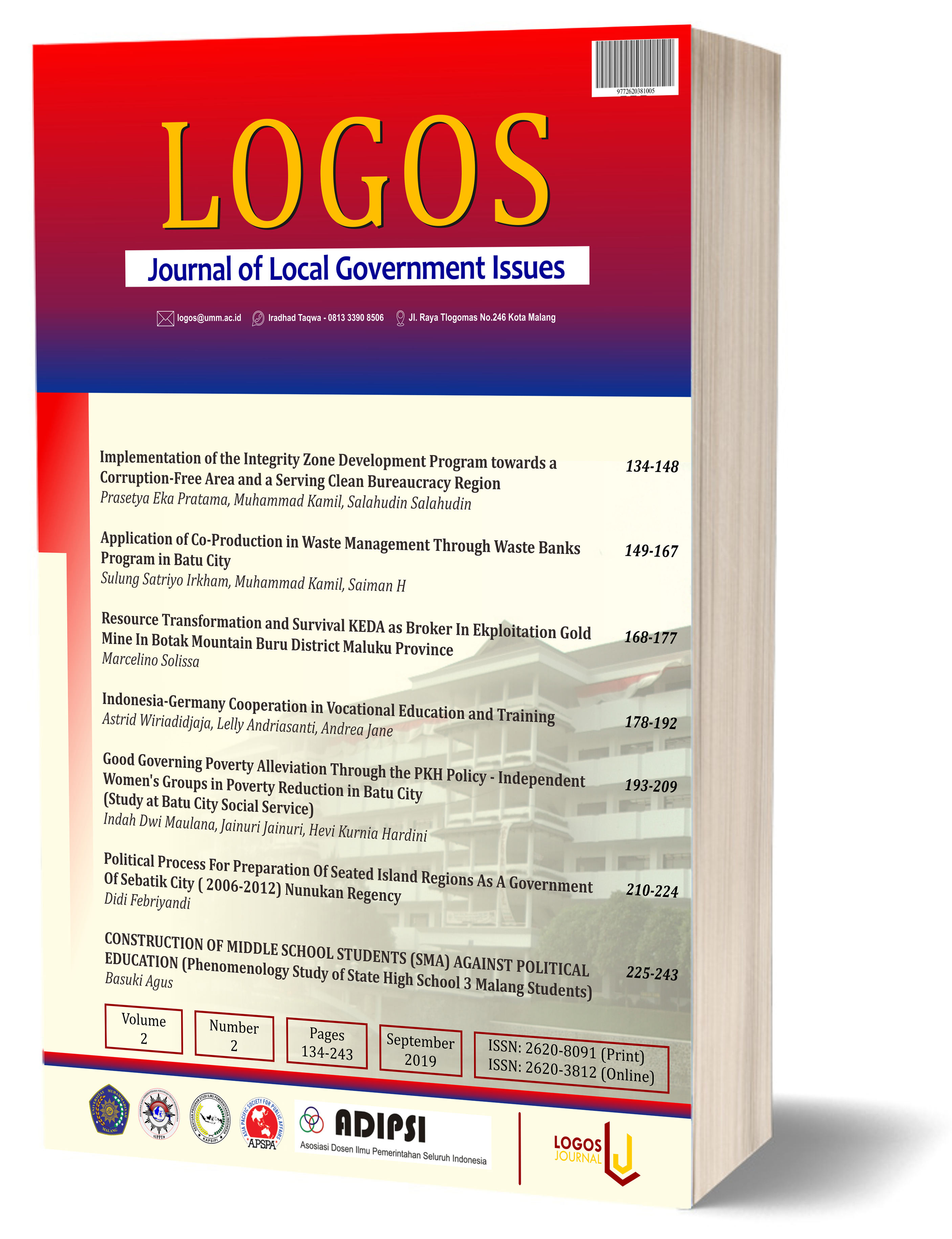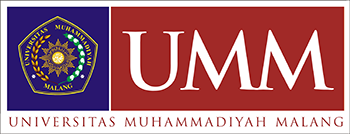Political Process For Preparation Of Seated Island Regions As A Government Of Sebatik City ( 2006-2012) Nunukan Regency
DOI:
https://doi.org/10.22219/logos.Vol2.No2.210-224Abstract
This paper looks at how the political dynamics that occurred in the Sebatik City expansion process in 2006-2012. The process of regional expansion can be understood as a political phenomenon by involving long administrative and political processes. This paper focuses on looking at political aspects so that it discusses in detail the interests of actors and how these actors articulate their interests. The research method used is descriptive qualitative. Primary data collection techniques are done through observation, structured interviews. For secondary data collection is done by documentation and library techniques.
The results showed that the political process is complicated because it involves many interests of political actors making the Sebatik City expansion not realized until now. Although academic studies declared eligible and supported by the majority of Sebatik Island, high-level negotiations-negotiations have failed to realize Sebatik as Daera h Autonomy New (DOB). The political process that occurred did not create a consensus so that there was a conflict of interests that ultimately made the Sebatik City Expansion process hampered.
Key Words: decentralization, regional autonomy, outer islands, division
Downloads
References
Aini, N. (2012). "Domestifikasi Etnisitas: Pemekaran Wilayah dan Rutinisasi Kekerasan antar Etnis di Maluku Utara." Jurnal Pemikiran Sosiologi 1(1): 103-115.
Anwar, S. (2014). Pemekaran Wilayah Bone Selatan, Doctoral dissertation.
224
Please Cite This Articel As : Didi Febriyandi, Political Process For Preparation of Seated Island Regions As a Government of Sebatik City, 2006-2012: Journal of Local Government Issues (LOGOS), https://doi.org/10.22219/LOGOS.Vol2.No2.210-224
Beli, W. S. (2016). "Hidden Power dalam Politik Pemekaran di Nusa Tenggara Timur." Journal Of Government (Kajian Manajemen Pemerintahan dan Otonomi Daerah) 2(1).
Haris, S. (2005). Desentralisasi dan Otonomi Daerah: Desentralisasi, Demokratisasi & Akuntabilitas Pemerintahan Daerah, Yayasan Obor Indonesia.
Muqoyyidin, A. W. (2013). "Pemekaran Wilayah dan Otonomi Daerah Pasca Reformasi di Indonesia: Konsep, Fakta Empiris dan Rekomendasi ke Depan." Jurnal Konstitusi 10(2): 287-310.
Said, M. M. u. (2005). Arah Baru Otonomi Daerah di Indonesia, Penerbitan Universitas Indonesia.
Salim, A. (2006). "Teori dan Paradigma Penelitian Sosial Yogyakarta: Tiarawacana."
Santoso, L. (2012). "Problematika Pemekaran Daerah Pasca Reformasi di Indonesia." Jurnal Supremasi Hukum 1(2): 267-286.
Sihidi, I. T. (2017). Ekspresi Voluntersisme Politik Studi Teman Ahok Di Pilkada DKI Jakarta 2017, Universitas Gadjah Mada.
Strauss, A. and J. Corbin (2003). "Dasar-Dasar Penelitian Kualitatif." Yogyakarta: Pustaka Pelajar.
Sugiyono (2011). "Metodologi Penelitian Kuantitatif, Kualitatif dan R&D." Alpabeta, Bandung.
Taqwa, I. (2018). "Expression of Political Friends Ahok Voluntarism in Elections Jakarta 2017." Journal of Local Government Issues 1(1): 56-84.
Downloads
Published
How to Cite
Issue
Section
License
Copyright (c) 2019 Didi Febriyandi

This work is licensed under a Creative Commons Attribution-ShareAlike 4.0 International License.
Authors who publish with this journal agree to the following terms:
- Authors retain copyright and grant the journal right of first publication with the work simultaneously licensed under a Creative Commons Attribution-ShareAlike 4.0 International License. that allows others to share the work with an acknowledgment of the work's authorship and initial publication in this journal.
- Authors are able to enter into separate, additional contractual arrangements for the non-exclusive distribution of the journal's published version of the work (e.g., post it to an institutional repository or publish it in a book), with an acknowledgment of its initial publication in this journal.
- Authors are permitted and encouraged to post their work online (e.g., in institutional repositories or on their website) prior to and during the submission process, as it can lead to productive exchanges, as well as earlier and greater citation of published work (See The Effect of Open Access).

This work is licensed under a Creative Commons Attribution-ShareAlike 4.0 International License.













